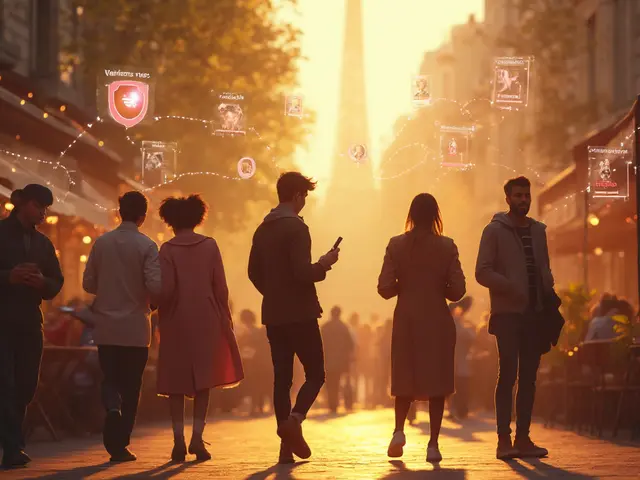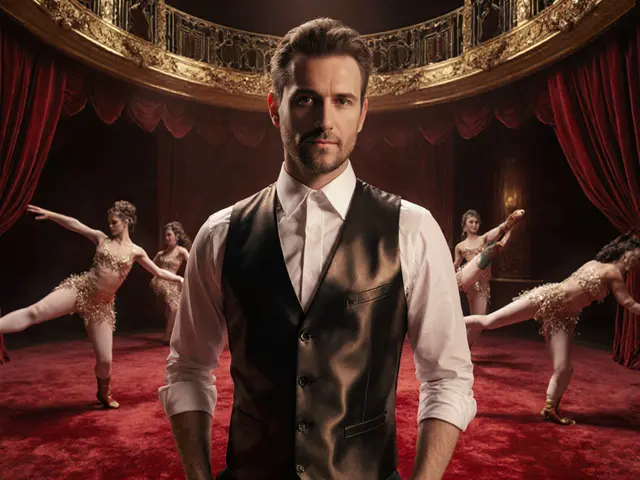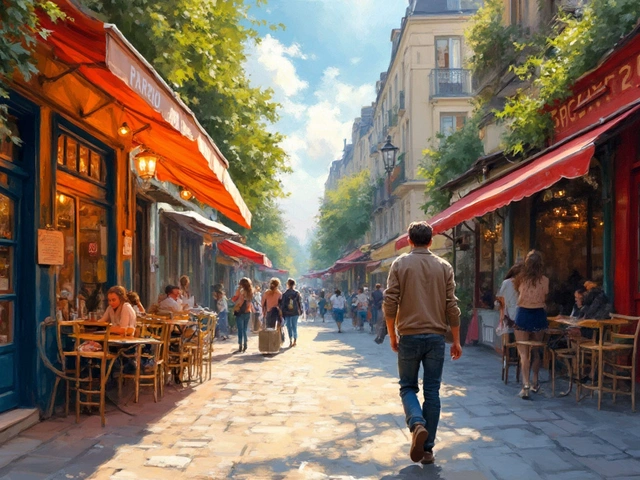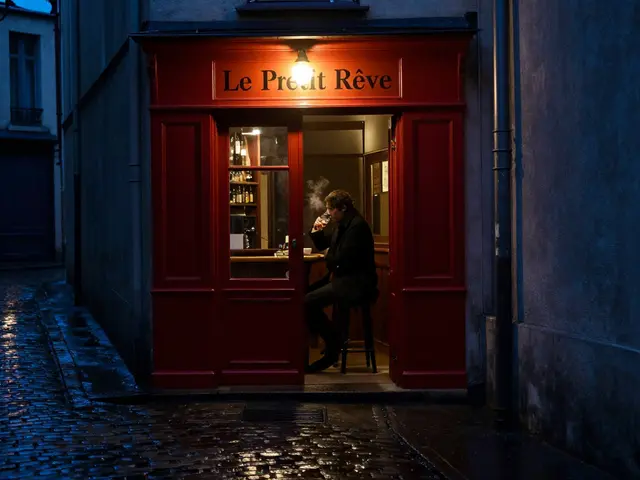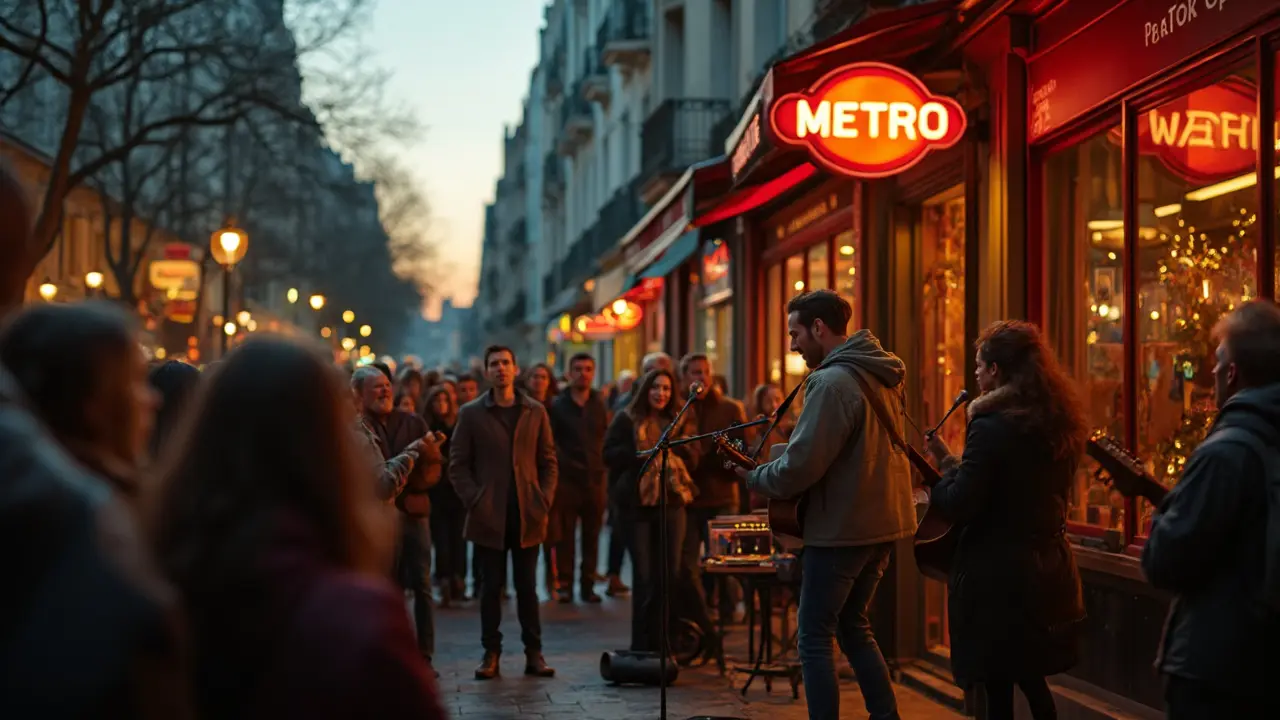
Ask anyone in the Parisian music scene, and they'll tell you—without live shows, new artists barely stand a chance. In Paris, the raw energy of a crowded basement gig at Le Pop-Up du Label or a sunny street performance near Canal Saint-Martin can do more for your music career than months spent behind a laptop.
Parisians are picky, but they love discovering fresh voices. Venues like La Maroquinerie and La Bellevilloise aren’t just famous, they’re true testing grounds. If you win over a Paris crowd—even a small one—you’re on the right track. Plus, in this city, word-of-mouth spreads fast. Play one good set in a République bar, and someone in the crowd might introduce you to a promoter or get you a slot at Fête de la Musique.
Emerging artists in Paris also find strength and real feedback in direct interactions. When you haul your guitar onto the Métro or plug in at Les Disquaires, you’re getting much more than applause—you’re feeling out the real market. As tough as it is, these little moments are how careers get started here.
- Paris: The Real-World Stage
- Venues That Open Doors for New Talent
- How Parisian Audiences Challenge and Inspire
- Leveraging Local Events and Platforms
- Building Long-Term Careers from Paris Gigs
Paris: The Real-World Stage
Paris isn't just another city—it's a playground for bold musicians trying to make a name. In the French capital, live music Paris means more than playing to a crowd; it's about testing your skills in a city known for strong opinions and a love of fresh sounds. From Pigalle’s electric club scene to student bars in the Latin Quarter, each neighborhood offers different vibes and learning curves.
Concrete example: if you’re new, you can literally walk into open mic nights at Bizz’art or Café Oz and sign up for a short set. Spots like Le Supersonic are famous for booking new bands after just a couple of good live videos. Don't be surprised to find talent scouts in the audience—yes, they actually show up.
Want some numbers? Here’s a quick look at the Paris live music scene in 2024:
| Number of Live Venues | Annual Small Concerts | Top Emerging Artist Events | Average Audience Size (Small Venues) |
|---|---|---|---|
| Over 280 | 8,000+ | Fête de la Musique, Chorus Festival, MaMA Music & Convention | 50-200 |
For artists, these numbers mean dozens of places to try your stuff and thousands of gigs to get noticed. The tight spaces, packed rooms, and no-frills setups force musicians to connect, not just perform. Paris doesn’t care much about big gear or slick production—if your songs hit, people will listen. If not, they’ll move on.
If you want to play on the street, Paris makes it straightforward. You just need a simple permit from the Mairie, and you’ll see acts daily near Châtelet or Place des Vosges. For many local acts, this is the test that really counts: real ears, honest reactions, and tips only if you connect.
Bottom line? The stage is always open in Paris—you just have to step up, play, and learn from what comes back at you. No other city throws artists in front of such a real, tough, music-loving crowd. Survive here, and you’re ready for anything.
Venues That Open Doors for New Talent
Getting your break as a new artist in Paris isn’t about luck—it’s about knowing where to play. Some venues are famous for launching careers because they take chances on fresh faces. The live music Paris scene lives and breathes through these spots. Let’s break down where you should actually try to get a gig if you want people who matter to hear you.
Le Pop-Up du Label is one of those places people mention when they talk about their first real gig. It’s in the 12th arrondissement, small enough to feel intimate, but established enough to draw in music industry watchers. Their open calls and showcases are legit—if you’re good, you’ll get noticed.
Then there’s Les Trois Baudets near Pigalle. Back in the day, Jacques Brel played there. Now, it’s a launchpad for indie acts with weekly new artist features. Their team actually helps pair up singers, songwriters, and even helps with a bit of promo. Don’t just show up—apply online or reach out to their booker with sample tracks.
Maybe you’re into something more rowdy. Le Supersonic in Bastille is famous for its "free entry, no ego, just music" vibe. They put up unsigned acts right alongside international indie tours. The best tip? Go to their open mic Tuesdays to network. Even if you don’t play that night, you’ll find other musicians to team up with.
If jazz is your thing, Sunset Sunside on rue des Lombards is an institution. Their “Révélations” nights are made for unknown talent looking for their first real audience. The stage is small, but the ears in the crowd are sharp and connected. Playing well here is a badge of honor.
Don’t forget street performance spots either. Around the Seine, many buskers got their first big social media videos, which led to regular gigs in cafés or festivals. Always check with the local mairie for busking permits—Paris can be tough on unlicensed performers, but it’s legal with the right paperwork.
One last tip: keep an eye on Le Point Ephémère by Canal Saint-Martin. It’s one of the few places that lets you apply all year, offers cheap rehearsal rooms, and hosts emerging artist nights that attract bloggers, podcasters, and even old-school label scouts. Play here, and you’ll likely walk out with more than just applause.
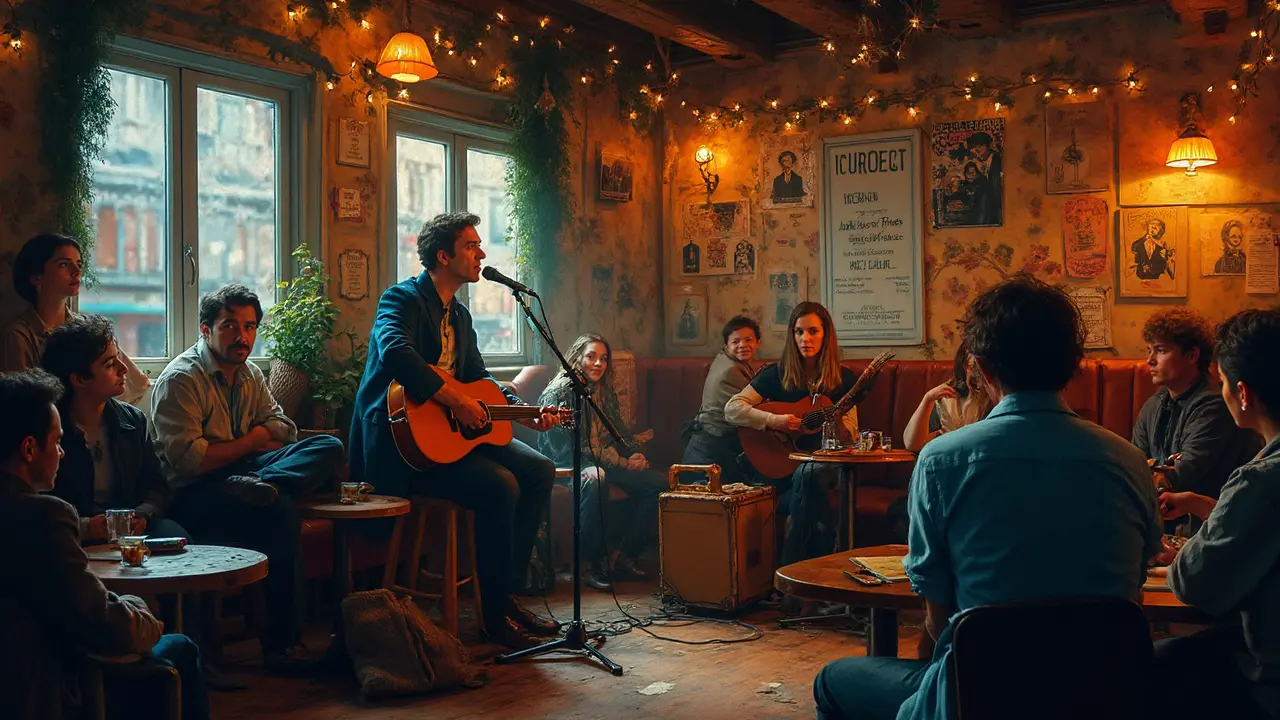
How Parisian Audiences Challenge and Inspire
Playing live music in Paris is no walk in the park. The crowd here is famously tough—think less of polite applause and more of honest, sometimes blunt feedback. But that’s exactly what makes the Parisian audience so valuable for emerging artists. They don’t make it easy, but they do make you sharper and better at what you do.
Look at open mic nights in bars like Au Père Populaire or the regular showcases at Le Truskel. Performers talk about the "silent judgement"—if the crowd is quiet, it means they're actually listening. When you finally get a cheer or see phones come out, that’s when you know you’re doing something right. Shockingly, about 1 in 3 local concert-goers admit they won’t even clap out of politeness if they don’t like the set (per a 2023 poll by BuzzMyMusic France).
“If you can win a crowd in Paris, you can win them anywhere. They see so many acts that average just doesn’t cut it.” — Mathieu Persan, booker at La Maroquinerie
Why does this matter for artists? It’s simple—you get real-time reviews. In a city full of seasoned music fans, your vibe, lyrics, and stage presence are all under the microscope. And it isn’t just about surviving skepticism; it’s about absorbing the energy and building on it. Plenty of artists say that bombing at first made their later gigs miles better.
Also, Parisian audiences are incredibly diverse, so you’re not just playing to locals. At venues near Bastille or in Pigalle, the crowd might be made up of students, international travelers, and hardcore music fans. This mix keeps things unpredictable and pushes you to adapt your set in the moment.
| Venue | Typical Audience Size | Unique Challenge |
|---|---|---|
| La Bellevilloise | 300-500 | Eclectic audience, indie crowd |
| Les Disquaires | 50-120 | Music critics and musicians show up |
| Le Pop-Up du Label | 70-150 | Trendy, expects originality |
If you’re serious about growing as a performer, lean in. Watch what gets the room moving. Notice which tracks people end up humming when the show’s over. When you crack the code with a Paris crowd, you gain both confidence and credibility that can set you apart anywhere else. And don’t forget—sometimes the toughest rooms give you the best stories and the sharpest skills.
Leveraging Local Events and Platforms
If you’re a new act in Paris, you have way more opportunities than you might think. The city runs on live music events year-round, and honestly, these are your fastest route to a solid fanbase and new industry contacts.
First, let’s talk about open mic nights and jams. Places like Le Motel and L’Alimentation Générale host weekly open mics where anyone can jump in. These are not just for practice—they're actual scouting spots for music bookers. Bring friends, because a small crowd helps get you noticed. After your set, stick around and trade contacts.
Then, you’ve got city-backed events like Fête de la Musique. Every June 21, Paris is flooded with stages and buskers, no permit headaches. It doesn’t matter if you’re unknown; play a good version of your best song and you’ll see crowds grow in minutes. According to the Mairie de Paris, over 5,000 acts performed in 2024, and several local bands scored festival gigs later that summer just from a solid street show.
Don’t forget about digital platforms that are Paris-focused. Bandsintown has a local Paris calendar where you can list free gigs. Facebook groups like "Musiciens à Paris" are full of people looking for openers and last-minute lineup fillers. These online moves put you on the radar for bookers with empty slots and local influencers sharing event tips.
The impact of these efforts can be seen in the growing attendance at Paris music bars. Here’s a quick look at typical crowd sizes and artist turnover in popular venues:
| Venue | Avg. Audience | New Acts per Month |
|---|---|---|
| Le Pop-Up du Label | 120 | 10 |
| Les Disquaires | 80 | 14 |
| La Bellevilloise | 300 | 8 |
| L'Alimentation Générale | 150 | 12 |
For best results, you want to mix in-person and online hustle. Here’s how to work this scene smarter:
- Check event calendars at bars and dedicated music shops (like Gibert Joseph) for sign-up deadlines.
- Film your performances and tag venues and other acts—in Paris, cross-promotion is everything.
- Talk to the sound guy and bartenders; they often tip you off about unannounced slots or after-hours shows.
If you want your music to move in Paris, it’s not about luck—it’s all about showing up and plugging in wherever you can.
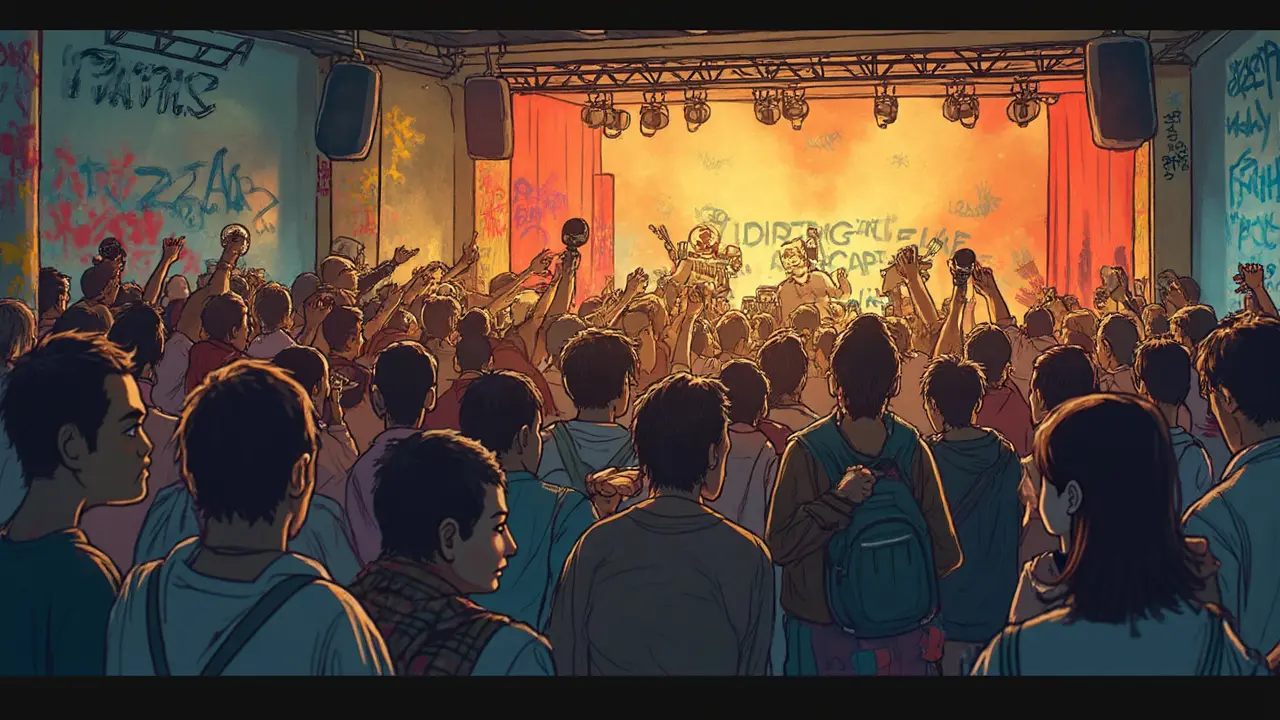
Building Long-Term Careers from Paris Gigs
Getting regular gigs in Paris can be the difference between fizzling out and building a real, lasting career as an artist. Artists who grind through Paris venues like Le Bus Palladium, Supersonic, and Les Trois Baudets don’t just build fans—they build networks with bookers, managers, and even other artists. It's not rare for newcomers to catch the eye of indie labels or festival organizers at these local hot spots.
But Paris isn’t just about connections—it’s about learning. Playing often in front of diverse crowds, especially in places like Le China in the 2nd arrondissement or on the stage at Point Ephémère, forces you to adapt. Crowds here won’t sugarcoat feedback. The good news? If your set kills somewhere in Bastille or Pigalle, that reputation really sticks. Your next gig is often just a conversation away.
Here’s how artists shape their long-term pathways with live music Paris opportunities:
- Document the journey: Paris gigs give you real stories and footage to share. Record highlights and crowd reactions for your socials. People want to see you earning your stripes in classic venues.
- Collab locally: A lot of bands and solo acts in Paris come together after sharing a lineup. Play back-to-back with others, swap sets, or join in open jam sessions. You might find your next project or writing partner on an open mic night.
- Apply for artist development programs: Paris has legit support for up-and-coming acts. Check out Le Fair, which has boosted stars like Christine and the Queens. Also, local radio stations like FIP and Radio Nova sometimes feature gigs or offer showcase slots if they hear a buzz about you.
- Get into festivals: Fête de la Musique and Solidays have open applications or rely on scout tips. Playing these can open doors to paid residencies and future regulars at big Parisian spots, not to mention a bump in your booking fees.
Don’t ignore the business side, either. After a few consistent gigs, start keeping track of your contacts, fees, and fanbase. Use French platforms like Weezevent for ticketing and collect emails at your shows for updates—keeping fans in the loop turns one-time listeners into long-term supporters.


